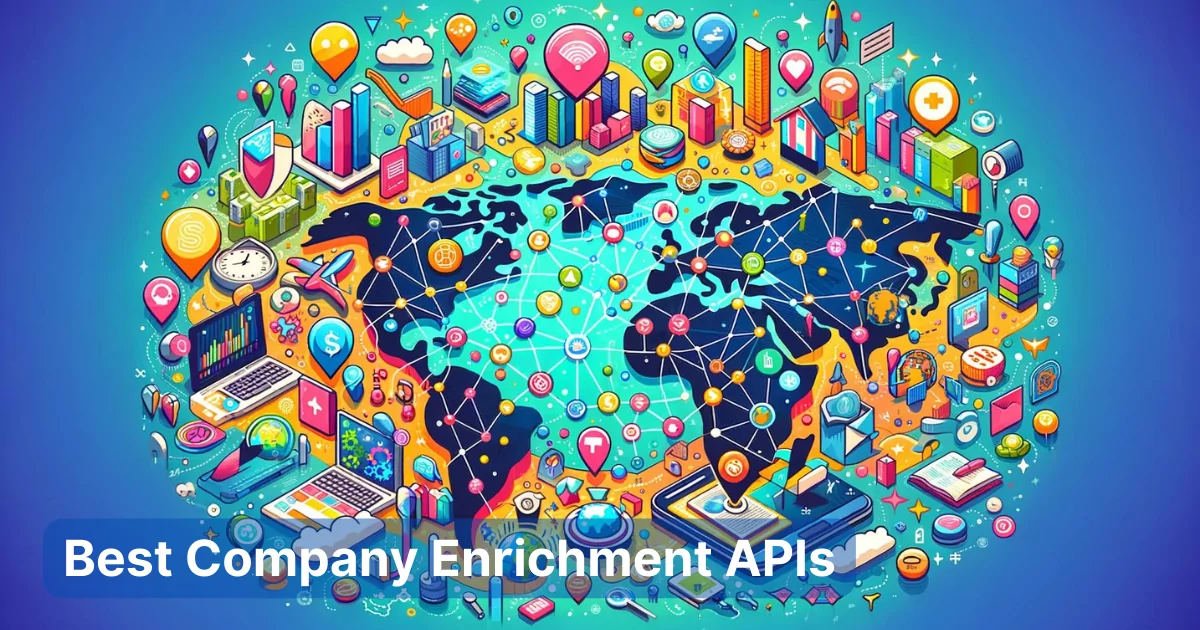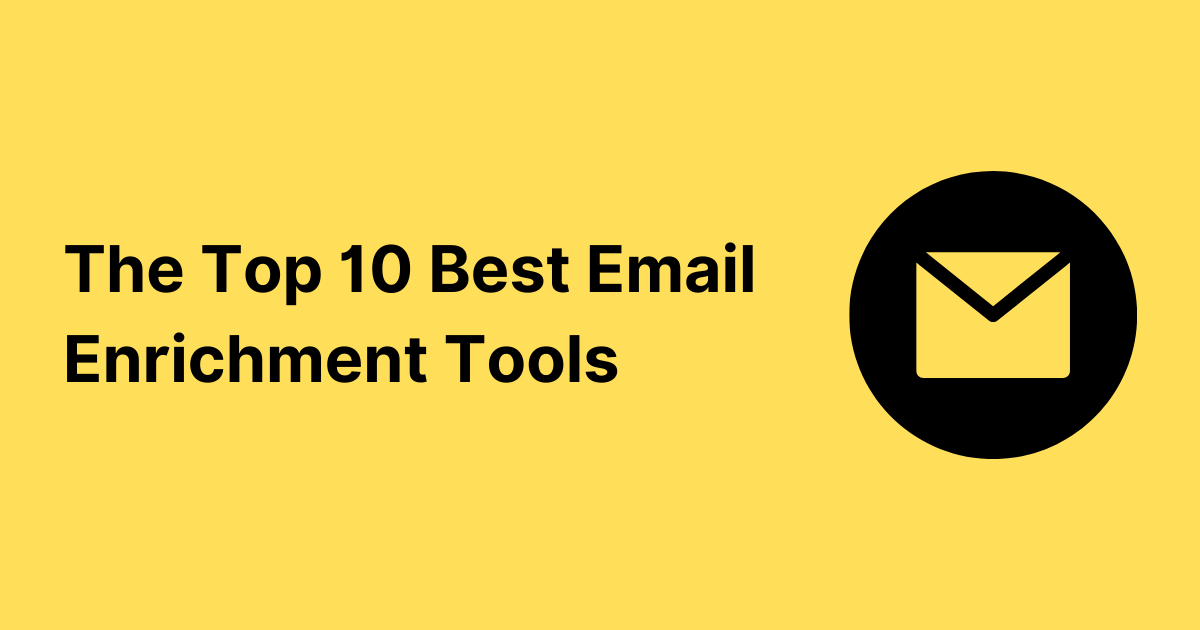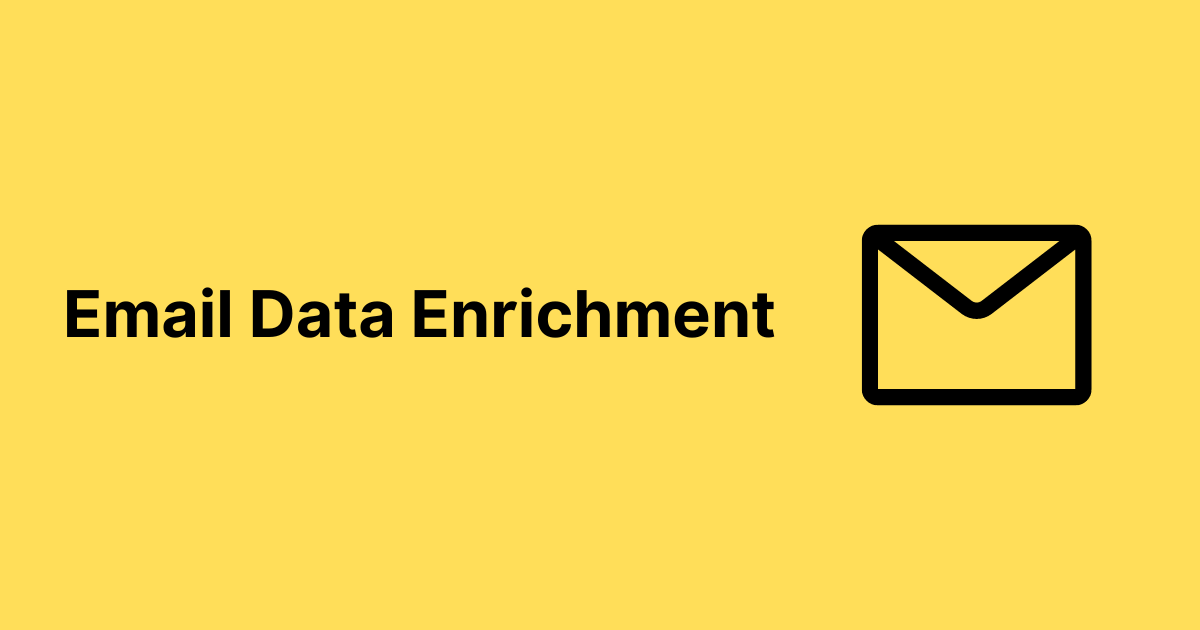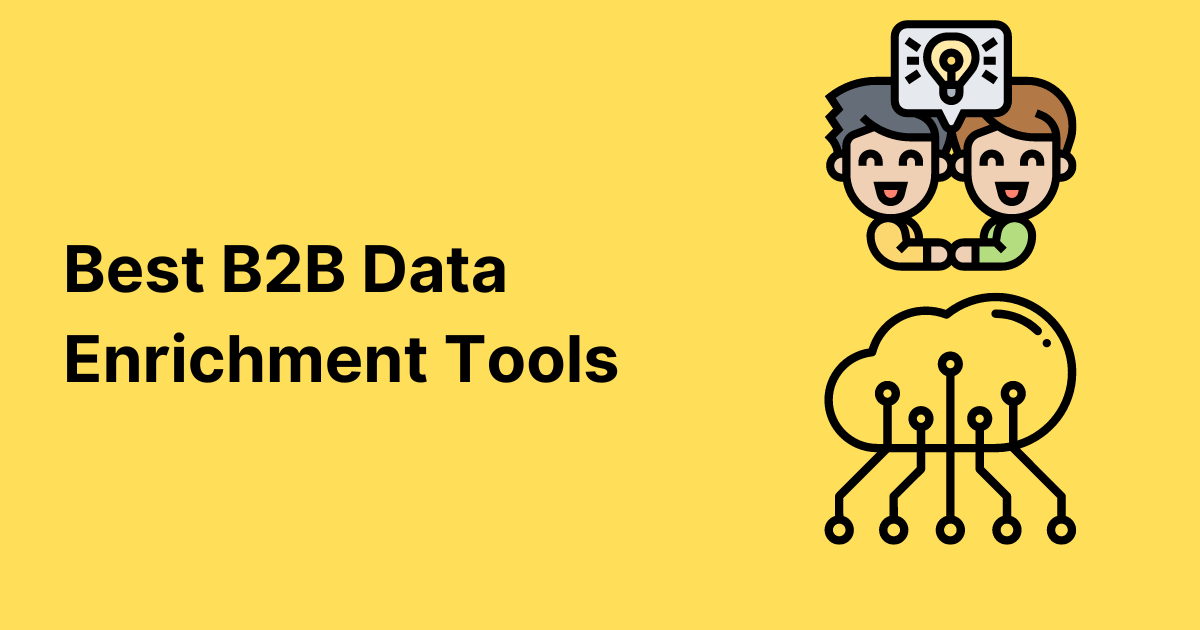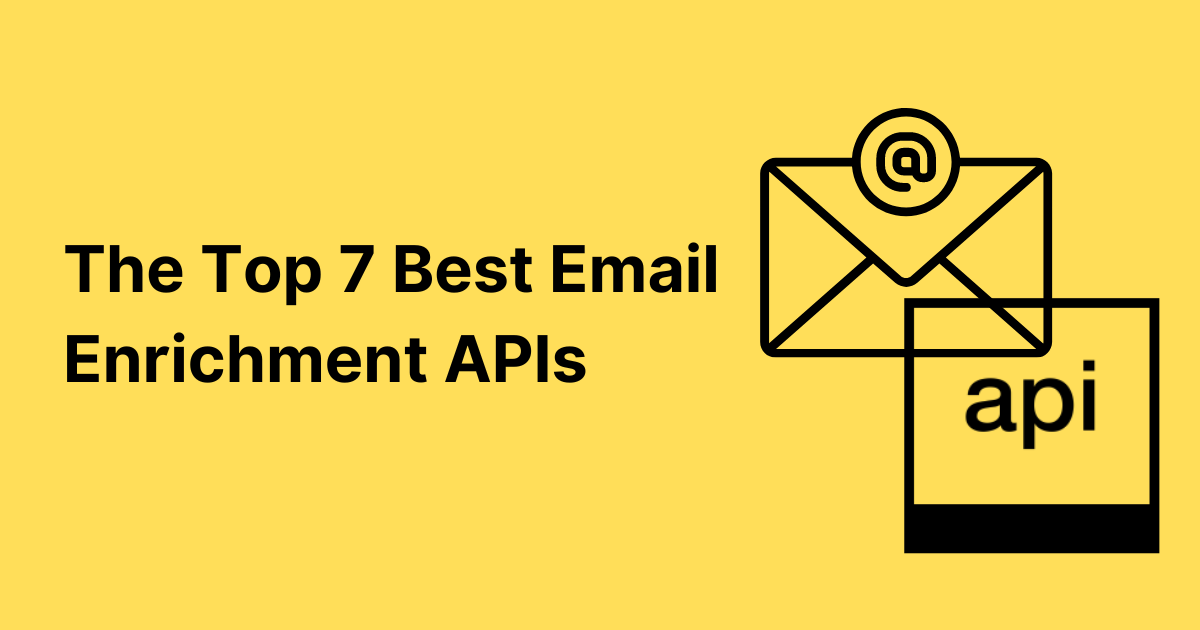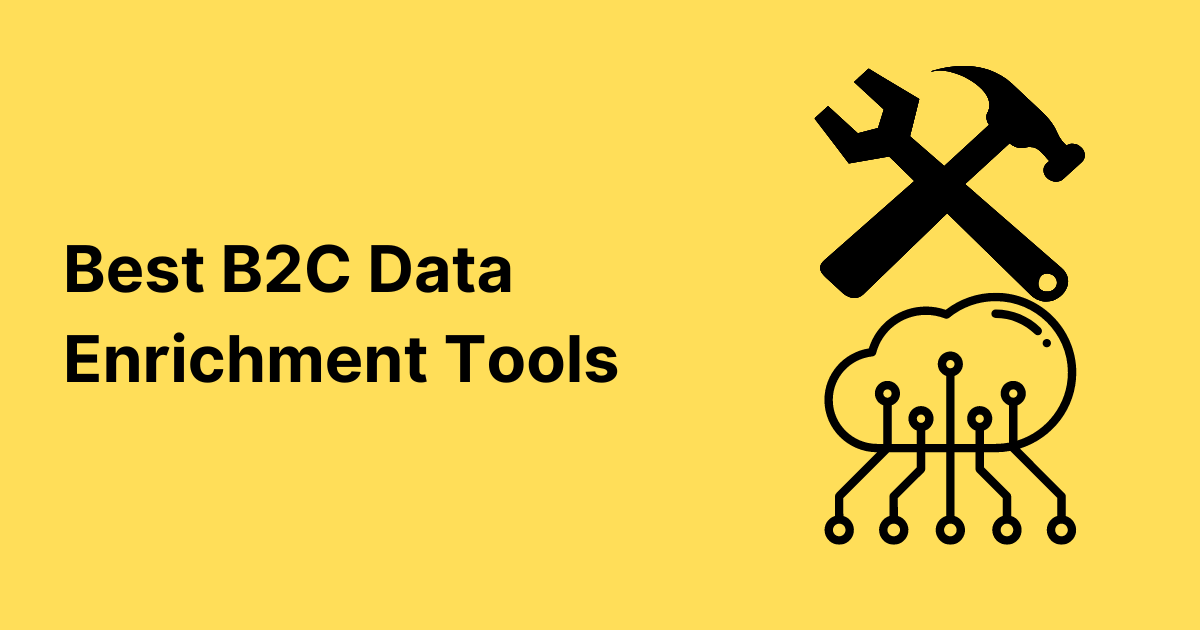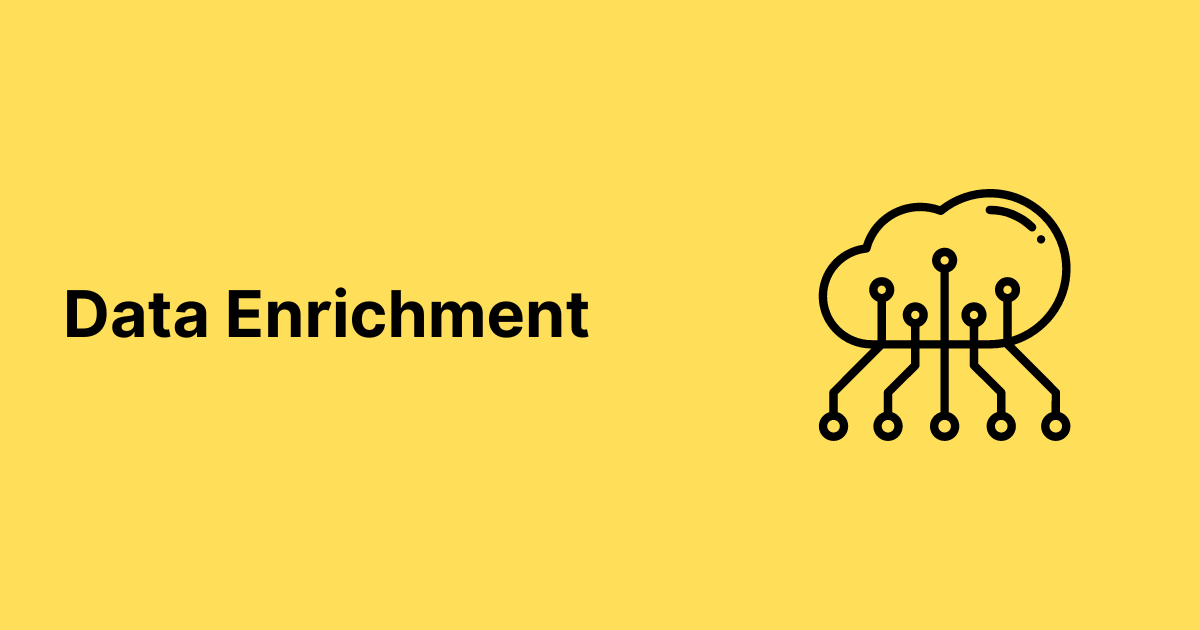Keeping ahead of the competition means knowing more than just the basics about your market and the companies within it. That’s where company enrichment APIs come into play. If you’re running a business or involved in sales, marketing, or any role that might benefit from deep data insights, knowing how you can leverage these APIs can be a game changer.
What these tools do is pretty straightforward, they help businesses beef up their existing data with additional, valuable information. Think of it as boosting your customer database. These kinds of APIs add layers of detail that weren’t there before. And this isn’t just about having more data, it’s about having the right data to make smarter decisions, tailor your marketing efforts, and ultimately, drive growth. And that’s what it’s all about, right?
Whether you’re looking to fine-tune your target audience, enhance your sales pitches, or just get a clearer picture of the business landscape, company enrichment APIs are the secret sauce many companies are using these days to get ahead. So let’s take a look into what makes these APIs work so well, who’s using them, and how they can transform your business data from good to great.
TLDR? Here are the best OCR APIs:
Top Company Enrichment APIs Compared side by side
| API | Best for | Pricing | Key Features | Free Plan |
|---|---|---|---|---|
| Abstract API | Global Coverage | $8/month-$366/month + customizable Enterprise plan available | -Data from companies in over 170 countries-Fast and reliable uptime-Bulk queries-24/7 support and technical onboarding (higher tier plan) | 100 requests (1 request/second) |
| People Data Labs | Larger companies seeking individual profiles in addition to company data | $100/month + customizable Enterprise plan | -3.2+B individuals and 61.2+M companies-no-code integrations-Good documentation | 100 monthly records and access to hundreds of data points |
| Clearbit | General data enrichment | Not disclosed (pricing is volume based) | -Data attributes from 250+ data sources-real-time updates-Powered by machine learning, with human QA team | Free batch enrichment service |
| Enrich | Sales and Marketing teams | Credit-based pricing starting at $70 | -Real-time updates-Easy-to-use interface-Free company lookup | 25 free monthly credits |
| Zoominfo | Enterprises and large companies looking for a comprehensive and scalable solution | Available after consultation (based on features, functionality, and number of licenses needed) | -Vast B2B database-Versatile and feature-rich-Codeless and intuitive interface | Available after consultation |
What is a Company Enrichment API?
At its core, a company enrichment API is a tool that does the heavy lifting of data collection and integration for you. It takes the bits and pieces of info you already have about a company, maybe just a name or an email address, and fills in the gaps with a ton of additional details. This could range from the company’s size, location, industry, and revenue, to more nuanced things like the technology they use or their social media activity.
Why does this matter?
Because in the realm of B2B, the more you know about a company, the better you can tailor your approach. A generic pitch can turn into a much more personalized proposal that hits all the right notes, which of course can dramatically increase your chances of success.
Who’s it for, you might wonder?
As its name implies, company enrichment APIs are a goldmine for businesses looking to enrich and deepen their market intelligence or refine their sales and marketing strategies. Whether you’re a startup trying to find your footing or a seasoned player simply wanting to expand your market share, enriching your data can give you that edge you’re looking for.
Just remember, it’s not only about adding volume to your data, but about enhancing its quality. By integrating enriched data into your CRM or sales platforms, you can automate personalized marketing campaigns, score leads more accurately, and identify new opportunities more efficiently.
How to Choose the Right Enrichment API
There are a ton of options, which might feel a bit overwhelming when you’re trying to decide which company enrichment API to pick. So how do you choose? The answer lies in knowing what to look for and aligning it with your business needs.
6 Factors to Consider:
1. Data Quality and Accuracy: Top of the list for sure. You want an API that pulls from reliable sources and delivers data that’s not just comprehensive but also accurate. After all, what’s the point of having a lot of data if it’s outdated or incorrect?
2. Coverage and Depth: Look for an API that covers a wide range of data points. Whether it’s financial data, company size, industry classification, or even the tech a company uses, the more depth the API can give you, the better.
3. Integration Ease: See how easily the API integrates with your existing systems. You’re looking for a seamless experience that doesn’t ask you to overhaul your current setup. Good APIs should play nicely with your CRM, sales platforms, or any other tools you rely on.
4. Real-time Updates: Things change, so having access to real-time or regularly updated data is important. This ensures you’re always working with the most current information, keeping you a step ahead.
5. Cost-effectiveness: While not always the deciding factor, cost plays a big role, especially for small businesses or startups. Weigh the benefits against the investment and look for an API that offers a good balance of features at a price point that makes sense for your budget.
6. Support and Documentation: Last but not least, a good API provider should offer solid support and clear documentation. This ensures that you can get up and running smoothly and have help on hand whenever you need it.
Top Company Enrichment API Providers
1. Abstract API
Best for Global Coverage
Abstract API is a top choice in the world of company enrichment APIs. It offers data from a wide global reach, covering companies in over 170 countries. This means you can access detailed information about businesses around the world, like company size, location, the industry it’s in, and plenty more, which comes from their updated data sources.
It offers rich data on domains and emails with its lightning-fast REST API, and it’s built for scale. So whether you have 10 or 10,000 API requests per second, they can handle it.
Abstract API is a major player when it comes to handling and delivering rich company data. Their API is fast, they boast 99% uptime, it comes with 24/7 support plus technical onboarding support, and they’re API plays nicely with major tech stacks.
In short, they’re enterprise-ready.
Above is a quick screenshot of a test request to airbnb.com, which returns some useful data based only on the domain. Their free version will give you a private API key that lets you test out their API’s capabilities, which is handy if you’re on the fence about upgrading to their full plan.
I also like that they have extensive documentation on getting started, which is nice if you’re not as familiar with API integration. They do a good job at walking you through the process.
Pros
- Wide global coverage
- Fast and reliable uptime
- CSV upload for bulk queries
- Bank-level security (256-bit SSL encryption)
- Good documentation and tutorials
- Free tier
- 24/7 support and technical onboarding for higher tier plan
Cons
- Technical support locked behind the higher-tier plan
- The free tier is more for testing
Free Tier
Abstract API offers a free tier that comes with 100 requests (1 request a second).
Pricing
Abstract API offers several plans, ranging from $8/month with 12,000 calls/year up to $366/month with 1,200,000 API calls/year. These plans all include domain whitelisting and multiple API keys, with the number of requests per second depending on the specific plan.
They also offer a customizable Enterprise plan that includes 24/7 support, 99.99% uptime SLA, and technical onboarding. This higher-tier plan is based on your business-specific needs, with pricing TBD.
Reviews
On their website, Abstract API boasts 4.8 stars from nearly 1,863 votes. People seem to like its simplicity, tools, and easy integration.
2. People Data Labs
Best for larger companies seeking individual profiles in addition to company data
People Data Labs is another popular solution for retrieving important company insights. They have a rich dataset of over 3.2+ billion profiles that are refreshed every month, so you know you’re getting up-to-date info. It’s fast, built to scale, and perfect for virtually any industry, whether you’re an HR tech, in sales and marketing, or fraud and identity.
Above is a sample JSON output response. Of course, the data retrieved can get pretty extensive and includes details like location, social media, summary about the company, relevant tags, funding stages, and much more.
Beyond company enrichment, People Data Labs lives up to its name by also offering an extensive dataset that includes contact details, social media profiles, resumes, and demographic information for over a billion individuals.
Pros
- Over 3.2 Billion individuals and over 61.2 Million companies
- Good documentation
- No-code integration options
- People and company data
- Free tier
Cons
- Higher price point than some competitors
- Data isn’t updated as frequently as other APIs
Free Tier
The Free plan offers up to 100 monthly records and access to hundreds of unique data points, all while ensuring data compliance with ISO & SOC 2 Type 2 standards.
Pricing
The Pro plan starts at $100/month and includes everything from the free tier, plus email support and a starting point of 1,000 monthly records, with the option to save 20% on annual billing. For larger businesses or those with specific needs, the Enterprise plan offers custom solutions, including access to premium fields, a designated customer success manager, and flexible licensing options, along with enterprise-grade features like SAML/SSO for enhanced security and integration flexibility.
Reviews
Overall, People Data Labs has solid online reviews. People seem happy with the quality and richness of the data and documentation. Others have mentioned it can be a bit technical and the price point is steep.
3. Clearbit
Best for general data enrichment
Clearbit is a well-known powerhouse in the B2B data enrichment field. Unlike Abstract and People Data Labs, however, they don’t have a special focus on company enrichment, but rather data enrichment in general. They offer access to over 100 B2B attributes distilled from more than 250 data sources, like number of employees, revenue, location, tech stacks, contact information, and more, which marketers and sales teams will find helpful.
Clearbit integrates well with Zapier, HubSpot, Salesforce, and other major CRM or marketing platforms. What I found interesting about Clearbit is that they leverage machine learning for constant improvements which is backed by a dedicated QA team, so you know data is accurate. Plus, their records refresh when changes are detected. Having real-time updates can be critical for some businesses.
Pros
- B2B attributes from 250+ data sources
- Real-time record updates
- Powered by machine learning backed by a human QA team
- Integrates with major CRM and marketing tools
Cons
- Known to have higher costs
- Complexity may overwhelm smaller teams
In the screenshot above, you can see some of the supported parameters along with a sample API response. With this API, you can easily look up data on a person or company based on an email or domain name.
Free Tier
While Clearbit doesn’t currently offer a free plan, the Batch Enrichment service is a free, though limited, option that allows you to upload a list of emails or domains and get an enriched list in return, which is ideal for small, one-off projects or intermittent data enhancement needs.
Pricing
While the price isn’t explicitly stated on their website, their flexible Business plan is volume-based. You can contact their team to get a customized plan for your needs which would include company and contact enrichment, lead scoring and routing, form optimization, and more features. Just specify the number of contacts in your database to get a quote.
Reviews
Clearbit has positive reviews online, with 4.5 stars on G2 out of 619 reviews. Based on the reviews, users seem to appreciate the data enrichment features, like the easy integration with CRM systems and the depth of insights given on leads and customers. Some criticisms include a learning curve to fully leverage the platform as well as some data inaccuracies, but overall, Clearbit looks like it’s truly valued for its ability to enhance lead qualification and segmentation.
4. Enrich
Best for sales and marketing teams
Enrich stands out in the world of data enrichment APIs, particularly for sales and marketing professionals wanting a deeper insight into their prospective clients. It sets itself apart from many competitors with real-time enrichment of company and employee data.
A nice perk is that it has a free company information lookup tool, which you can see in my screenshot above. This is a quick and convenient way to check or validate company information. This user-friendly interface is also a nice way to simply test the service’s functionality before integrating it into your systems with the API.
Some other APIs they offer include email verification, email finder, and bulk lookup (for email and company). Below is a snapshot of a Company Lookup API response.
Overall, Enrich offers a straightforward, user-friendly solution. Since you get 25 free credits from signing up (no credit card needed), you can easily get started with their lookup tool. What you get back is limited, but its a good way to dig around their services without having to integrate anything.
Pros
- Real-time updates
- Easy-to-use interface for non-technical users
- The free company lookup tool
- 25 free monthly credits
- Great customer service
- Straightforward credit-system pricing
Cons
- No free plan
- Limited data points provided in the basic lookup
Free Tier
Enrich doesn’t exactly offer a free plan, but they do offer 25 free credits a month which can be used for any of their services. 1 credit is equal to 1 valid request. It’s pretty limiting, but it offers a way to test their services without having to pay anything.
Pricing
Enrich offers a tiered pricing model based on the number of credits bought. These credits are used to access their Person and Company API services. The more credits you buy, the lower the cost per credit.
For $70, you get 500 credits, costing $0.14 per credit. For $300, you get 2,500 credits, making it $0.12 per credit, and so on.
Reviews
I found mostly positive reviews for Enrich on Capterra and G2. Based on some of these reviews, users seem most happy with the service’s ease of use and data accuracy. Some common complaints seem to be that the service might be a bit too pricey for smaller businesses and startups and that the data itself is a bit limiting.
5. Zoominfo
Best for enterprises and large companies looking for a comprehensive and scalable solution
ZoomInfo is another big player in the B2B data enrichment landscape. They offer a comprehensive suite of services aimed at maintaining the accuracy and currency of CRM and marketing automation data. This platform stands out for its ability to integrate data from over 60 vendors through a user-friendly, codeless interface. Many data enrichment companies I’ve looked at aggregate data from just a few standard sources, like public records and social media, like LinkedIn. So this is a plus in my book.
Unlike others on this list, their approach to data enrichment is very versatile, catering to a broad range of needs from basic CRM enrichment to advanced data management and activation through their various APIs and webhooks. This makes ZoomInfo an attractive option for enterprises wanting robust, actionable data across their go-to-market strategies.
Above is an example request of their Company Enrich endpoint, which lets you specify a maximum input of 25 companies in a single request.
In short, there’s a lot you can do with Zoominfo, which can feel overwhelming at first. Their documentation does a good job at highlighting its capabilities but isn’t as extensive when it comes to implementation (for those who may not be as tech-savvy). While they do have a free trial, you would need to first speak with a sales rep to get started (same goes for pricing).
This is a solution that feels tailored to bigger companies and enterprises requiring a more rich set of solutions.
Pros
- Access to a vast B2B database
- Versatile and feature-rich set of solutions
- Codeless and intuitive user interface
- High-quality data
- Real-time, on-demand, or scheduled data support across tech stacks
Cons
- Can be complex and overwhelming for new users
- Premium services may be too costly for small businesses
Free Trial
According to their website, they do offer a free trial, but you’ll need to submit a short online form that involves speaking with a rep before you can get started.
Pricing
ZoomInfo’s pricing isn’t listed on their website since it will vary depending on the specific features, functionality, and the number of licenses you need. The platform offers both basic and advanced credits for data enrichment, with costs influenced by the depth of B2B intelligence required. Prices will also depend on add-ons chosen, like real-time intent data and integrations with CRM and marketing tools, which might need a minimum purchase of credits.
Reviews
Zoominfo is a popular all-in-one solution, so you won’t be hard-pressed trying to find positive reviews online. On TrustRadius, they have an 8.1 out of 10 rating from 1646 customer reviews (in addition to their numerous awards).
Based on these reviews, ZoomInfo gets a lot of love for its detailed and up-to-date info, making it easier for sales and marketing folks to find what they need. The integration with CRM and marketing platforms is a big plus for many people. And some common complaints I saw were that finding the contact info can be hit or miss, and figuring out the pricing can be a bit complex.
Implementation and Integration
Integrating a company enrichment API into your systems, whether it’s a CRM, marketing automation platform, or custom app, typically follows a similar process no matter what provider you use, like the ones mentioned above.
Here’s a broad overview of how this process might look:
API Key and Authentication: First and foremost, you’ll need to sign up for the service and get your API key. This key is for authenticating your requests to the API. Depending on the provider, you might also have access to different authentication methods, like OAuth, for extra security.
Documentation Review: Most reputable providers will have good documentation that outlines how to make API calls, available endpoints, data formats, and examples. Be sure to review this documentation to understand how to query the API for company info and how to interpret the responses.
Development Environment Setup: Before integrating the API into your live environment, you’ll want to set up a development or testing environment. This allows you to make calls to the API without affecting your live data or operations. Some providers offer sandbox environments where you can do this.
API Calls and Data Retrieval: Next, you can start making API calls from your application to get or enrich company data. This typically involves sending a request with specific parameters (like a company name or domain) and receiving data in response, like company size, industry, revenue, and other relevant information.
Integration with Your Systems: This retrieved data can then be integrated into your systems. For CRMs, this might mean updating or creating new company records with enriched data. Marketing automation platforms could involve segmenting contacts based on enriched company attributes or triggering workflows based on specific company data points.
Continued Management and Updates: After integration, it’s important to manage and maintain the API connection. This includes monitoring its usage to make sure you’re staying within rate limits, updating API keys or authentication methods as needed, and adjusting your API calls based on any updates or changes to the API provider’s offerings.
Conclusion
In the realm of company enrichment APIs, you’ll find plenty of options that cater to diverse business needs, from startups to large enterprises. Whether you’re looking for in-depth insights, global reach, or real-time data updates, there’s likely a service that aligns with your goals.
With solutions like Abstract API, People Data Labs, Clearbit, Enrich, and Zoominfo, you can streamline your operations, enrich customer profiles, and sharpen your competitive edge.
FAQs
What is the cost of implementing a company enrichment API?
The cost can vary widely and it depends on the provider, the scope of data you need, and the scale of your operations. Some providers will offer a basic tier starting for free with limited requests, while premium plans for more extensive usage and advanced features can range from a few hundred to several thousand dollars per month.
How long does it take to integrate an enrichment API into existing systems?
The integration time for a company enrichment API can range from a few hours to a couple of weeks, depending on the complexity of your systems and the API’s compatibility with your existing tech stack. Straightforward integrations with well-documented APIs into commonly used CRM or sales platforms can often be completed quickly. More customized integrations or those requiring significant data mapping and testing may take longer to fully implement.

Jessica Cotzin is a Senior Engineer at a global digital agency. She is also a freelance writer in the tech industry, offering insights into the ever-evolving digital landscape.

